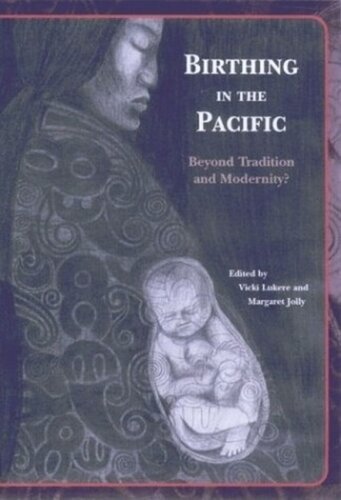

Most ebook files are in PDF format, so you can easily read them using various software such as Foxit Reader or directly on the Google Chrome browser.
Some ebook files are released by publishers in other formats such as .awz, .mobi, .epub, .fb2, etc. You may need to install specific software to read these formats on mobile/PC, such as Calibre.
Please read the tutorial at this link: https://ebookbell.com/faq
We offer FREE conversion to the popular formats you request; however, this may take some time. Therefore, right after payment, please email us, and we will try to provide the service as quickly as possible.
For some exceptional file formats or broken links (if any), please refrain from opening any disputes. Instead, email us first, and we will try to assist within a maximum of 6 hours.
EbookBell Team

4.3
68 reviewsThis collection explores birthing in the Pacific against the background of debates about tradition and modernity. A wide-ranging introduction and conclusion, together with case studies from Papua New Guinea, New Caledonia, Vanuatu, Fiji, and Tonga, show how simple contrasts between traditional and modern practices, technocratic and organic models of childbirth, indigenous and foreign approaches, and notions of "before" and "after" can be potent but problematic. The difficulties entailed confront public health programs concerned with practical issues of infant and maternal survival in developing countries as well as scholarly analyses of birthing in cross-cultural contexts.
The introduction analyzes central concepts and themes: questions of survival, safety, and well-being; the significance of postures, practices, and sites; the role of midwives, traditional birth attendants, and nurses; and the role of men in birthing and reproduction. Contributors--four anthropologists, a historian, and a community health worker--offer insights into the ways mothers, midwives, and nurses relate the traditional and the modern, and how ideas of tradition and modernity have shaped representations of Pacific childbirth. The conclusion provides researchers with a guide to relevant literature from several disciplines. As a whole the collection warns against either a celebration of emancipation through biomedicine or a recuperative romance about women's past powers in reproduction.
Contributors: Ruta Fiti-Sinclair, Margaret Jolly, Vicki Lukere, Shelley Mallett, Helen Morton, Christine Salomon.